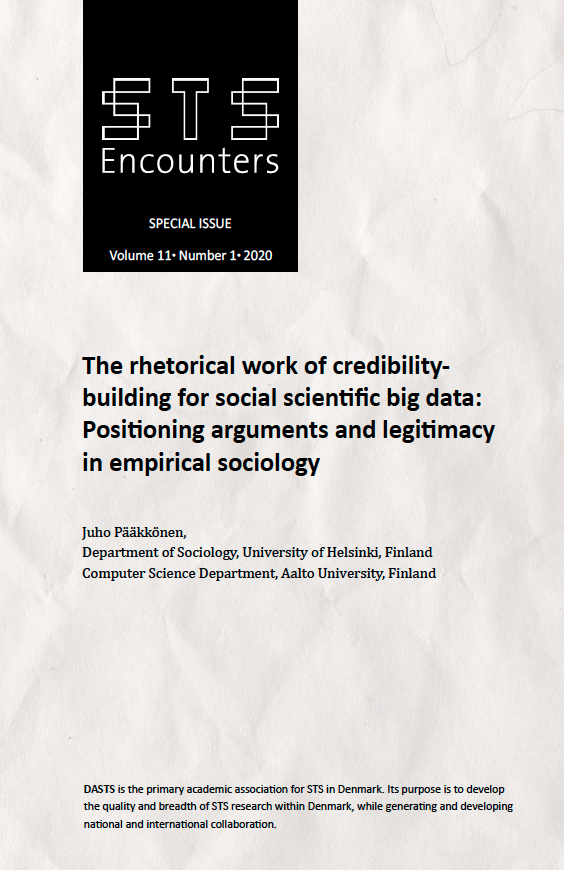The rhetorical work of credibility-building for social scientific big data: Positioning arguments and legitimacy in empirical sociology
DOI:
https://doi.org/10.7146/stse.v11i1.135285Keywords:
Big data, Credibility, Rhetorical positioning, Locus of legitimate interpretation, Empirical sociologyAbstract
This article investigates the rhetorical work of building credibility for social scientific research designs with big data. Big data is discussed as a contested concept in the social sciences, one whose meaning and implications are under dispute. Proceeding from analysis of 29 sociology articles based on empirical research, the author argues that credibility is constructed in this context through the rhetorical positioning of disciplines as legitimate interpreters of big data. The article identifies three distinct positioning strategies: conservative, reformist, and supplementarist, each of which locates the legitimacy of interpretation in its own way. While conservative positioning fixes the locus of legitimate interpretation within the social sciences, those employing a reformist strategy seek to widen it to encompass methods from beyond established social scientific fields. Finally, supplementarist positioning portrays big data as inherently limited and ties the legitimacy of interpretation to alternative approaches. Through identifying and addressing these respective strategies, the article discusses rhetorical positioning as part of the work of enacting big data: a performative process that can foster several visions of the future methodology of the social sciences.

Downloads
Published
How to Cite
Issue
Section
License

This work is licensed under a Creative Commons Attribution-NonCommercial-ShareAlike 4.0 International License.
Starting with volume 15, articles published in STS Encounters are licensed under Attribution-NonCommercial-ShareAlike 4.0 International (CC BY-NC-SA 4.0). The editorial board may accept other Creative Commons licenses for individual articles, if required by funding bodies e.g. the European Research Council. Previous articles are not licensed under Creative Commons. In these volumes, all rights are reserved to the authors of the articles respectively.




